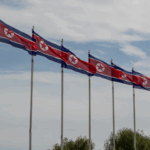South Korean presidential front-runner proposes won-based stablecoin

South Korea’s Democratic Party leader Lee Jae-myung proposed creating a stablecoin tied to the Korean won to prevent capital outflows and strengthen national financial sovereignty.
Speaking during a recent policy discussion, Lee argued that a won-based stablecoin would allow South Korea to retain wealth domestically while reducing reliance on foreign-issued digital assets like USDtUSDT$1.00Tether USDtChange (24h)0.00%Market Cap$139.35BVolume (24h)$68.08BView Moreand USDCUSDC$0.9996USDCChange (24h)0.01%Market Cap$52.17BVolume (24h)$7.25BView More,accordingto The Korea Herald.
Currently, South Korean law prohibits the issuance of domestic stablecoins, forcing local exchanges to rely on US dollar-based alternatives.
Between January and March, crypto exchanges in the country recorded 56.8 trillion won ($40.8 billion) in asset outflows, nearly half of which were linked to foreign stablecoins, the report said.
“We need to establish a won-backed stablecoin market to prevent national wealth from leaking overseas,” Lee reportedly said.
Related:Top South Korean presidential hopefuls support legalizing Bitcoin ETFs
South Korean candidates make pro-crypto promises
The proposal is part of Lee’s broader digital asset strategy, which includeslegalizing spot cryptocurrency exchange-traded funds (ETFs).
Both Lee and rival Kim Moon-soo of the People Power Partyhave pledged to supportthe introduction of spot crypto ETFs.
Lee’s campaign also calls for the National Pension Fund and other institutional players to be allowed to invest in cryptocurrencies once price stability criteria are met.
To facilitate this, he proposed an integrated monitoring system and lower transaction fees, making crypto more accessible under government oversight.
However, the stablecoin proposal has sparked concern among economists. Shin Bo-sung, a senior Korea Capital Market Institute researcher, warned that stablecoins could inflate the money supply and shift monetary control to private issuers.
“We must not overlook the economic principles behind them. Stablecoins are essentially another form of banking, creating money out of nothing,” Shin said.
Related:RedotPay enters South Korea with crypto-powered payment cards
Democratic Party sets up “Digital Asset Committee”
On May 13, South Korea’s Democratic Partylaunched a Digital Asset Committeefocused on developing cryptocurrency policies and promoting industry growth.
The committee, which held its inaugural meeting at the National Assembly Members’ Hall in Seoul, highlighted the importance of resolving regulatory uncertainty and addressing issues likestablecoinregulation.
The new committee joins similar organizations in South Korea, including theVirtual Asset Committeelaunchedin late 2024 and another public-private crypto task forceintroducedin 2022, both initiated by the Financial Services Commission (FSC).
The Democratic Party is alsoset to introduce the Digital Asset Basic Act. The bill would establish a legal framework for cryptocurrencies and stablecoins, requiring issuers to hold at least 50 billion won in reserves and gain approval from the FSC.
Magazine:Father-son team lists Africa’s XRP Healthcare on Canadian stock exchange
Explore more articles like this
Subscribe to our Crypto Biz newsletter
Weekly snapshot of key business trends in blockchain and crypto, from startup buzz to regulatory shifts. Gain valuable insights to navigate the market and spot financial opportunities. Delivered every Thursday
By subscribing, you agree to ourTerms of Services and Privacy Policy

Published on Other News Site
















